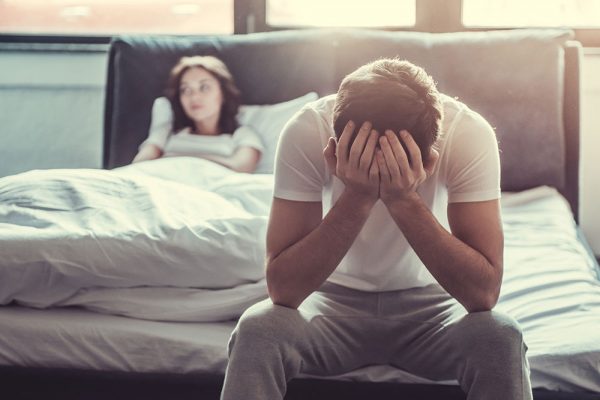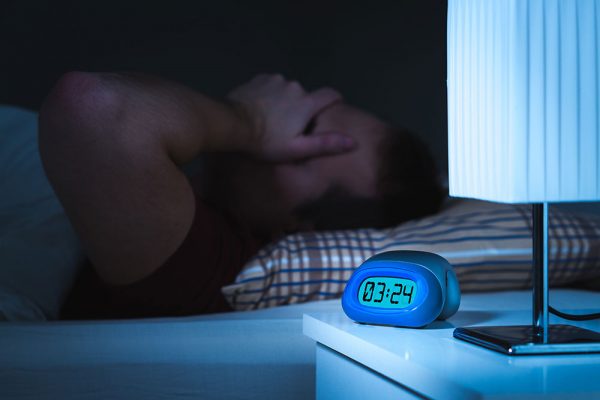Dr. Katz — Our Sleep Dentist — Can Help
Sleep apnea is a sleep disorder that, if left untreated, can carry substantial consequences, such as high blood pressure, heart disease, and stroke. It can also make you disorganized, result in a lack of focus, and cause weight gain.
If you’ve noticed these signs in yourself or a loved one, please contact our dental clinic to speak with our Greensboro sleep dentist, Dr. Mark Katz. He’ll make sure that you get the right diagnosis, treatment, and a fulfilling night’s rest.
The Link Between Sleep Apnea and ADHD
There’s a profound connection between sleep apnea and ADHD that goes beyond surface-level symptoms. Both conditions exhibit surprising overlaps in their manifestations, compounding challenges for affected individuals. Daytime sleepiness, difficulty concentrating, and irritability are common features in both disorders. When coexisting, these symptoms can intensify, creating a complex interplay.
Moreover, sleep apnea’s disruptive impact on cognitive functioning is a crucial aspect of this relationship. The interruptions in breathing characteristic of sleep apnea lead to fragmented sleep, preventing individuals from reaching restorative stages. This chronic sleep deprivation significantly affects attention, memory, and decision-making. For those already grappling with ADHD, these cognitive deficits can amplify, making daily tasks even more demanding.


Misdiagnosing Sleep Apnea and ADHD
It’s estimated that 36 million Americans — both adults and children — have ADHD (Attention Deficit/Hyperactivity Disorder). Of those people, between one-half and three-fourths also endure some sleep disorder. Unfortunately, ADHD is often misdiagnosed as sleep apnea, leading to incorrect treatment and lasting symptoms. We can help you receive the proper diagnosis by recommending you for a sleep study.
Sleep Apnea and ADHD Share Similar Symptoms
According to the Mayo Clinic, some of the symptoms of ADHD include:
- Restlessness
- Mood swings
- Disorganization
- Impulsivity
- Trouble focusing
- Temperament issues
Sadly, the symptoms of sleep apnea are uncomfortably similar, such as restlessness, mood swings, irritability, and behavioral issues. This is why it’s common that some doctors initially misdiagnose the disorders.
For patients who are experiencing some of the symptoms of ADHD but not all of them, we recommend scheduling a consultation with Dr. Katz at (336) 364-8988. He can refer you to a specialist for a sleep study, which will help you toward a proper diagnosis. That way, you can get the treatment you need to help you live better.


The Mechanisms at Play
There are underlying mechanisms connecting these distinct conditions. Sleep apnea disrupts breathing patterns, causing micro-awakenings and shifts in sleep stages. This impairs the body’s ability to rest and alters crucial neurotransmitter balance for cognitive function.
Neurobiologically, dopamine regulation is key. It drives motivation, attention, and reward processing. Sleep apnea’s impact on dopamine can worsen ADHD symptoms, intensifying cognitive challenges.
Additionally, episodes of low oxygen levels (hypoxia) during apnea events contribute to the overlap. The intermittent drops in oxygen levels trigger stress responses in the body, culminating in widespread cognitive dysfunction.
Diagnostic Challenges and Overlap
Dr. Katz notes that diagnosing both sleep apnea and ADHD can be complex due to their overlapping symptoms. In children, hyperactivity and inattention are common in both ADHD and sleep apnea. Similarly, adults may experience difficulties with concentration and mood regulation.
Dr. Katz stresses the importance of undergoing a sleep study and receiving thorough assessment by specialists with knowledge in both areas to ensure accurate diagnosis and tailored treatment.


Seek Effective Treatment
If we find that an obstruction is the cause of your sleep apnea, you might benefit from our life-changing treatment — an oral appliance. This treatment aims to restore airflow to your lungs and keep the airway open while you sleep. The severity of your condition is how we’ll determine which treatment is best.
Frequently Asked Questions
How can I be sure that my ADHD symptoms aren’t caused by sleep apnea?
Addressing sleep apnea often leads to improved concentration, reduced fatigue, and enhanced mood. This may significantly improve ADHD symptoms, making them more manageable or even resolving them entirely.
Is my ADHD treatment contributing to my sleep apnea or other sleep disorders?
Talk to your doctor if you feel like your medication regimen is conflicting with your sleep schedule. They may recommend a change in medication or dosage to better suit your needs. Sometimes, a simple change in the time of day that you take your medication can have significant benefits for sleep regularity.
Can treating sleep apnea improve ADHD symptoms?
How common is the co-occurrence of sleep apnea and ADHD in adults?
Take the First Step Towards Better Sleep and Mental Health
If you or a loved one suspect the presence or co-occurrence of sleep apnea and/or ADHD, seeking diagnosis and treatment is crucial. Call our Greensboro office at (336) 364-8988 or fill out our online contact form to schedule a consultation today. Dr. Katz treats patients in Greensboro and surrounding areas such as Winston-Salem, Whitsett, Summerfield, and Kernersville, NC.
